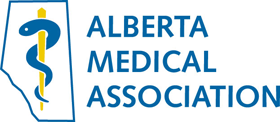Indigenous health

The Truth and Reconciliation Commission of Canada issued several calls to action to help recognize and rectify some of the wrongs committed to the Canadian Indigenous population in the past and which continue to affect Indigenous peoples today. The AMA developed the AMA Policy Statement on Indigenous Health to support the calls to action on health from the TRC’s final report. The policy aligns well with the AMA’s mandate of being leaders in the health care system. The policy was approved by the AMA Board of Directors in July 2017 as a means to support the TRC calls to action on health, and for the AMA as an organization to support improvements in accessing quality care for Indigenous populations. Download the AMA Policy Statement on Indigenous Health.
The AMA formed the Indigenous Health working group to determine how to best address the TRC calls to action. This working group included Indigenous physicians, Indigenous members of the public and physicians with experience working with Indigenous populations. The Indigenous Health Committee has since been established to promote and operationalize the recommendations in the AMA Policy Statement on Indigenous Health. Learn more about the Indigenous Health Committee.
- Watch Educating our youth - Truth and Reconciliation Commission of Canada (YouTube).
- Download the AMA Policy Statement on Indigenous Health.

Systemic Racism in Health Care
The issue of ongoing systemic racism in our health care system has been profiled in many recent news articles. These stories offer a stark reminder of the work that remains to be done to address this unacceptable health inequity.

Indigenous Health Committee
The Indigenous Health Committee has been established to promote and operationalize the recommendations in the AMA Indigenous Health Policy Statement. It is an ongoing ad hoc committee of the AMA that reports to the AMA Board of Directors indirectly through the committee’s Senior Management member, Gayle Burnett, Chief Strategy Officer/AED Professional Affairs

Indigenous health and cultural resources
Informative and educational resources on Indigenous health and culture, sourced from First Nations and Indigenous organizations, government/government agencies and academia.
News and Events
New resource guide for physicians for National Day for Truth and Reconciliation
September 13, 2023
In advance of the National Day for Truth and Reconciliation on September 30, the Indigenous Health Committee of the AMA has created a resource guide for community physicians that contains links, recommendations and information about the realities facing Indigenous Health. The goal is to help physicians learn more about the importance of this day and support them in their ongoing reconciliation journey so that together, we can work toward health equity for all.
Statement from the AMA’s Indigenous Health Committee
June 20, 2023
The AMA Indigenous Health Committee has learned of the resignation of Dr. Esther Tailfeathers from her role as Senior Medical Director, Provincial Indigenous Wellness Core, AHS. Dr. Tailfeathers is a member of the IHC, a highly respected member of our community and a prominent advocate for Indigenous health. The circumstances that led to her resignation have raised questions from the IHC including Indigenous physicians and community members.
Questions and comments
- Please contact Shannon Rupnarain, Assistant Executive Director, Public Affairs, AMA, if you have questions or comments regarding the public affairs component of the AMA Indigenous Health Policy Statement or require information regarding the Indigenous Health Committee function and/or membership.
